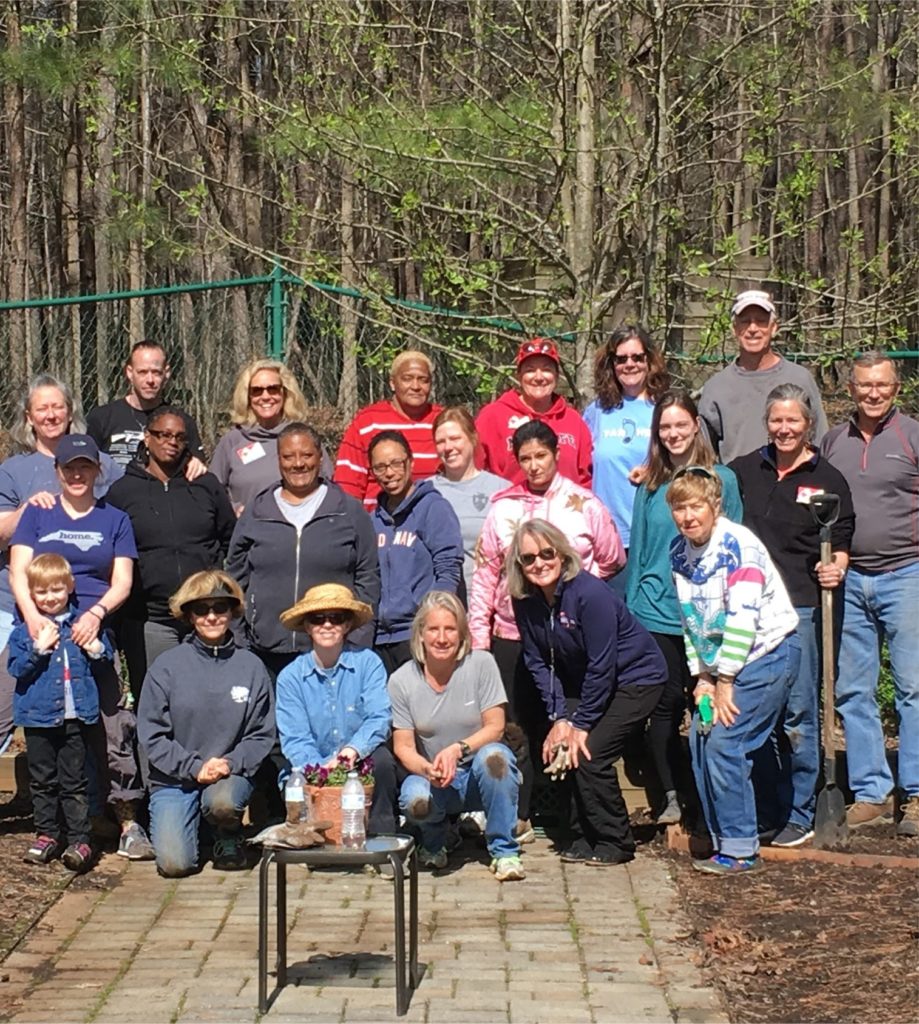Therapeutic Horticulture Programs by Wake County Extension Master Gardeners
go.ncsu.edu/readext?236121
en Español / em Português
El inglés es el idioma de control de esta página. En la medida en que haya algún conflicto entre la traducción al inglés y la traducción, el inglés prevalece.
Al hacer clic en el enlace de traducción se activa un servicio de traducción gratuito para convertir la página al español. Al igual que con cualquier traducción por Internet, la conversión no es sensible al contexto y puede que no traduzca el texto en su significado original. NC State Extension no garantiza la exactitud del texto traducido. Por favor, tenga en cuenta que algunas aplicaciones y/o servicios pueden no funcionar como se espera cuando se traducen.
Português
Inglês é o idioma de controle desta página. Na medida que haja algum conflito entre o texto original em Inglês e a tradução, o Inglês prevalece.
Ao clicar no link de tradução, um serviço gratuito de tradução será ativado para converter a página para o Português. Como em qualquer tradução pela internet, a conversão não é sensivel ao contexto e pode não ocorrer a tradução para o significado orginal. O serviço de Extensão da Carolina do Norte (NC State Extension) não garante a exatidão do texto traduzido. Por favor, observe que algumas funções ou serviços podem não funcionar como esperado após a tradução.
English
English is the controlling language of this page. To the extent there is any conflict between the English text and the translation, English controls.
Clicking on the translation link activates a free translation service to convert the page to Spanish. As with any Internet translation, the conversion is not context-sensitive and may not translate the text to its original meaning. NC State Extension does not guarantee the accuracy of the translated text. Please note that some applications and/or services may not function as expected when translated.
Collapse ▲The first Extension Master Gardener℠ volunteer (EMGV) Therapeutic Horticulture program in Wake County was started in 2005 by Catherine Soderberg. Those who are physically and mentally challenged are supported through:
- social development,
- psychological well-being, and
- physical rehabilitation
Residents live in interactive facilities that provide:
- Assisted Care,
- Intermediate Care, and
- Independent Living
Currently, Wake County EMGVs are supporting:
- 2 facilities in Raleigh,
- 2 in Wake Forest,
- 1 in Cary,
- 1 in Fuquay Varina, and
- 1 in Zebulon.
Wake County Extension Master Gardener Volunteers (EMGVs) have grown their therapeutic horticulture program to include groups of EMGV’s visiting each of six assisted living facilities and one Independent Living facility around the county each month. A total of 20 EMGVs have committed to this program, and the response to their therapeutic horticulture activities has been inspiring! The 7 facilities include:
- Brighton Gardens and Springmoor in Raleigh,
- Glenaire in Cary,
- Carolina House and Crossings at Heritage Independent Living in Wake Forest.
- Carillon in Fuquay-Varina, and
- Zebulon House
Many of the residents in the participating facilities were gardeners at some time in their life, so planting, harvesting, and eating from their gardens brings back positive memories that they freely share during classes. Those confined to wheelchairs can garden in raised beds or large containers. Other related activities have included
- attracting birds and butterflies,
- composting,
- making flower necklaces, and
- food preservation.
A favorite class was making herb butters. During this class residents were able to harvest the herbs; wash, cut, and mix them with the butter; and the best part, to spread them on bread and taste! In one meeting, residents actively assisted in the design and making of the pressed, dried flower bookmarks. One resident said he’d use his bookmark in his Bible and another said books were her emotional outlet and without them, she didn’t know what she would do. Her bookmark was going to be put to use immediately.
The Wake County EMGV Therapeutic Horticulture Program will continue to engage challenged populations, providing them with healthy opportunities and memorable experiences.
Extension Master Gardeners of Wake County are part of the volunteer staff of NC University’s Cooperative Extension Service. In 2012, 8341 hours were logged – all helping Wake County to grow beautifully! Master Gardeners provide unbiased research-based educational assistance and programs in horticulture and environmental issues to the gardening public.
An Extension Master Gardener is available to respond to calls and emails during office hours Monday – Friday 9:00 a.m.-12 noon and1:00 p.m. – 4:00 p.m.
Phone (919) 250-1084,
Email: mgardener@wakegov.
Website:



